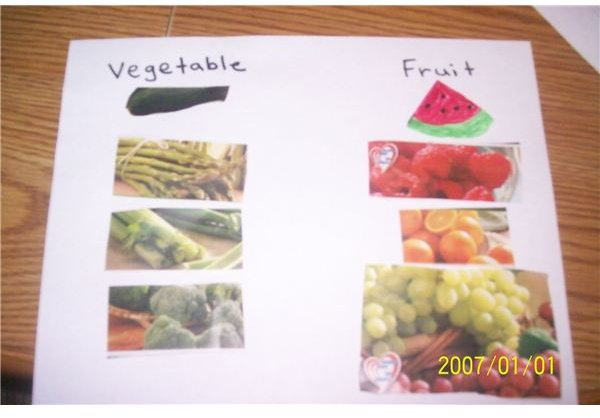Hydrating Summer Foods Lesson Plans for Preschool
Objectives:
- Students will learn the basic definition of Dehydration.
- Students will identify two foods and that keep us hydrated.
- Students will know the difference between a fruit and vegetable with 75% accuracy.
- Students will realize the importance of staying hydrated.
Yummy Summer Foods
Ask children to name popular foods that they eat in the summer. Show pictures of different foods. Ask them which summer foods are good for you and which ones should be eaten in moderation. Explain to students that in the summer our bodies can become dehydrated due to the warmer temperatures. Teach the children what dehydration means, why we should drink plenty of water and which foods keep us hydrated. Two popular summer foods that keep us hydrated are watermelon and cucumbers. The teacher will mention other hydrating fruits and vegetables, as well.
Shrunken Watermelons Science Experiment
Another popular yummy summer food is watermelon. Read the Enormous Melon by Brenda Parkes. Tell the students that watermelon is mostly made up of about 90% water. Tell students that we also are made up of water. That is why it is so important to stay hydrated during the summer. Show them a whole watermelon. Have children guess how much the watermelon weighs. Bring out a pair of scales and take turns weighing each other. Write children’s weight on the board. Ask students to predict if they weigh more or less than the watermelon. Put the melon on the scales and weigh it. Record your results.
Give each child a piece of melon in a bowl and let them squeeze the juice out of it. Notice how much of the melon is left on the plate.
Now we will compare the weight of a watermelon that is hydrated and one that is dehydrated. Take a whole watermelon and cut it in half. The teacher will then weigh one of the halves on a pair of scales. Record the weight. The teacher will ask children if they think the melon will weigh more or less after it has been sitting in the hot sun. The teacher will place the melon half in the sun for a few days. After a few days bring the watermelon back into the classroom and weigh it on the scale. Record the results. Discuss the differences in the two pieces of watermelon.
Resembles a Melon or Cucumber Language Activity
Explain the difference between a fruit and vegetable. Give each student a large piece of white cardstock paper. Cut a variety of summertime fruits and vegetables out of a magazine or newspaper. Glue a picture of a cucumber on the top and label it with the word vegetable. Glue a picture of a watermelon on the other side and label it with the word fruit. Have the students place the pictures under the correct heading.
Pair the Cucumbers Language Activity
Cucumbers are a healthy summer food. Have them guess if it is a fruit or vegetable. Cucumbers are made of 95% water. What other foods are made with cucumbers? Bring cucumbers into the class and let the students eat them.
Cut out several cucumbers from green paper. Write an uppercase and lowercase letter on each cucumber. Have students correctly pair the cucumbers.
Cool as a Cucumber Melon Pops
Keep kids hydrated with these cucumber-melon pops
Ingredients:
2 cups sugar
4 pounds seedless watermelon
1-3 cucumbers
2 limes, juiced
How to Make:
Cut the watermelon into chunks, throw the rind away. Peel the cucumbers and chop into pieces. Place the melon and cucumber into a blender and puree them. You will need around four cups of melon and two cups of cucumber. Place water and sugar in a saucepan and bring to a boil. Set aside to cool completely. Combine the melon and cucumbers with two cups of the sugar syrup, and mix until smooth. Strain the mixture through a sieve to remove any pieces. Stir in the lime juice. Pour the mixture into Popsicle molds, and freeze until hard. These are best if made the day before serving.
Assessment
The teacher will monitor students’ understanding that foods are made up mostly of water, that we are made of water and the importance of drinking and eating certain foods to stay hydrated. Children will be able to name at least two different summer foods that help them stay hydrated and verbalize what happens when we become dehydrated. Students will also demonstrate understanding of the difference between a vegetable and fruit by naming some examples.
Summer is a great time to teach students how to stay hydrated and food is a yummy addition to any lesson plan.
References
Activities and by Lisa King, all rights reserved.
Parkes, Brenda. The Enormous Watermelon. Kingscourt Mcgraw Hill, January 1, 2001.
Seasonal Produce, https://www.kraftrecipes.com/cooking-tips/foodbasics/seasonalproduce/cucumbers.aspx
